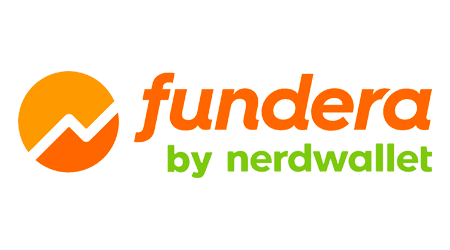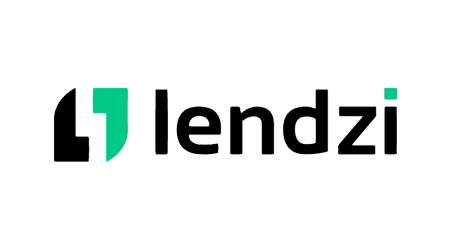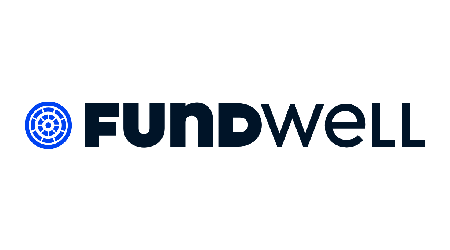Whether you need a term loan, a line of credit or a merchant cash advance (MCA), $75,000 business loans come in many forms to suit a range of business needs. To qualify for a loan of this amount, you typically need to be in business for at least six months and generate at least $120,000 a year in revenue.
Where to get a $75,000 business loan
Most lenders, including banks, credit unions, alternative online lenders and business loan marketplaces, offer $75,000 business loans. Established businesses might find more competitive rates at a large national bank, while newer businesses might have better luck with an online lender or marketplace or an SBA loan specialist offering SBA 7(a), Express and 504 loans.
Compare $75,000 business loans
Compare these lenders that offer $75K business loans. Select Go to site to get started on your application. Or, visit our review page by choosing More info.
Compare other products
We currently don't have that product, but here are others to consider:
How we picked theseWhat is the Finder Score?
The Finder Score crunches 12+ types of business loans across 35+ lenders. It takes into account the product's interest rate, fees and features, as well as the type of loan eg investor, variable, fixed rate - this gives you a simple score out of 10.
To provide a Score, we compare like-for-like loans. So if you're comparing the best business loans for startups loans, you can see how each business loan stacks up against other business loans with the same borrower type, rate type and repayment type.
How to get a $75,000 business loan
The application process depends on the lender. While traditional bank loans typically require extensive paperwork, some online lenders offer “no-doc” loans that connect to your accounts and verify your financials right away.
Regardless of the lender, here are the general steps to apply for a $75,000 business loan:
- Determine the type of loan you need. Decide what type of loan you need. For funding a one-time cost, look for a term loan. For ongoing expenses or cash flow dips, look for a line of credit or an MCA. For equipment, vehicles or machinery, choose an equipment loan, which is backed by collateral, to get the best rates.
- Compare lenders. Find and compare lenders that offer $75,000 loans by looking at the loan’s APR, terms and requirements. Do you need the money right now, or would you rather do more research first? Online business lenders can get you funding faster than banks but may cost more.
- Check your eligibility. Online lenders typically offer prequalification so you can find out if you’re eligible and check your rates. But if you’re applying through a bank, you might have to call or apply in person and wait several days for a decision.
- Gather your documents. For a bank, prepare to gather your personal and business tax returns, profit and loss statements, and bank statements. For an online lender, you may get away with uploading your last three months’ bank statements.
- Fill out the application. The application can take a few minutes to over an hour, depending on the lender and type of loan. No-doc lenders tend to have the fastest application processes, allowing you to connect your bank accounts directly.
- Submit any additional information. Your lender reviews your application and reaches out for more information or documents if needed. Usually, you can submit these online, by mail or in person at a branch.
- Read and sign the contract. Review your final offer, making sure the rates, terms and monthly payments fit your business’s budget. If you agree, sign and submit your contract.
The turnaround time on $75,000 loans depends on the loan type. SBA loans can take weeks to process, while short-term loans from online lenders can take one business day or less. For the fastest application times and turnaround, consider a no-doc lender.
How to qualify for a $75,000 loan
While a $75,000 business loan is well below the average business borrowing amount of around $660,000, it’s still substantial enough that you’ll need to meet certain revenue requirements and other criteria, including:
- At least six months in business. Many lenders require you to be in business for at least six months to a year to qualify for a $75,000 loan.
- Minimum monthly revenue. Revenue requirements vary significantly by lender, but most require at least $10,000 a month or $120,000 annually.
- Good personal credit. Banks typically require a personal credit score of 670 or more, while online lenders may go as low as 520 for short-term financing like MCAs. For invoice financing or factoring, your credit score may not factor in at all.
- A personal guarantee. The lender may also ask you for a personal guarantee, especially for unsecured loans not backed by business assets.
How much does a $75,000 business loan cost?
The cost of a $75,000 business loan varies a lot depending on the type of loan. For example, a traditional bank term loan might start as low as 8% APR, while SBA loan rates are capped at the prime rate plus 3% to 6.5% for 7(a) loans — plus additional fees.
For shorter-term financing like lines of credit, APRs can run much higher — typically starting below 10% for the best credit borrowers and exceeding 60% APR for borrowers with lower credit scores.
Use the calculator below to find out how much your loan might cost based on different rates and terms.
Business loan calculator
See how much you'll pay|
Your loan
|
|---|
| Loan amount |
|
$
|
| Loan terms (in years) |
|
|
| Interest rate |
|
%
|
Fill out the form and click on “Calculate” to see your estimated monthly payment.
or
Compare more lendersBased on your loan terms
| Principal | $ |
|---|---|
| Interest | $ |
| Total Cost | $ |
How do payments on a $75,000 loan work?
It depends on your loan. Most $75,000 loans are term loans, SBA loans, lines of credit, merchant cash advances (MCAs), equipment financing and invoice factoring and financing. Payments vary widely across these types of financing. They might be monthly for a term loan but weekly or even daily for an MCA. And if you use invoice factoring, you won’t repay the factoring company at all — rather, you sell your invoices to the company for a discount.
7 types of business loans
Business loans for $75,000 cover a wide range of funding needs. Here’s a list of the most common types.
1. Term loans
One of the most common types of business loans is a term loan, and there are both short-term and long-term options. Loan amounts can reach millions and often have some of the most competitive rates in the business lending marketplace. Term loans offer lump sum payments and are typically paid back in equal monthly installments over months or years, which can make them easier to budget for than some options.
Consider if you…
- Need a lump sum of cash
- Want a predictable monthly payment
- Have a specific purchase in mind
Consider other options if…
- You’re not sure how much money you need
- You need ongoing financing
- You can’t meet the loan requirements
2. Business lines of credit
A business line of credit works similar to a credit card, where you can borrow as much as you need up to your approved limit, and your balance replenishes as you pay it off. Business lines of credit can be useful to pay for ongoing projects, cover cash flow shortages or serve as an emergency fund.
Consider if you…
- Need ongoing financing
- Aren’t sure how much you need
- Have seasonal cash flow shortages
Consider other options if…
- You need a lump sum of money
- You don’t need access to cash
- You don’t need an emergency fund
3. SBA Loans
SBA loans are offered by banks, credit unions and online lenders, but they’re backed by the federal government, making them less risky for lenders. Loan amounts can reach as high as $5 million and they typically have lower rates than many other types of business financing. But they’re difficult to qualify for, the loan process can be lengthy and some SBA loans require a down payment.
Consider if you…
- Have trouble getting financing elsewhere
- Don’t need fast funding
- Have a good credit score
Consider other options if…
- You need fast funding
- You’ve never applied for a business loan
- You qualify for other loans
4. Equipment loans
Equipment loans are a type of secured loan, where the equipment acts as collateral for the loan — much like a car loan. And, because the loan is secured, you may get a better rate, especially if you have a decent credit score. But if you can’t make your payments, you risk losing the collateral, which could put your business at risk. Some equipment loans may also require a down payment, depending on the lender.
Consider if you…
- Need to finance equipment
- Have money for a down payment
- Are looking for a lower rate
Consider other options if…
- You aren’t looking to purchase equipment
- You prefer an unsecured loan
- You can’t afford a down payment
5. Merchant cash advances
A merchant cash advance is a loan based on your future credit card sales. MCAs are typically most suitable for retailers or other businesses that have a lot of card sales, and how much you can borrow depends on your monthly revenues. Repayments are made weekly or daily and are usually deducted automatically from your account. This form of financing can be expensive and should only be considered a short-term solution.
Consider if you…
- Have a lot of credit card sales
- Have reliable monthly revenues
- Don’t qualify for cheaper funding
Consider other options if…
- You qualify for more affordable funding
- You don’t have a lot of card sales
- You don’t need fast funding
6. Invoice financing
Another type of (expensive) short-term financing is invoice financing, which leverages your unpaid invoices in exchange for cash. How it works is you borrow money based on a percentage of your outstanding invoices and then repay it, plus fees, as your customers settle their bills. Repayments are made weekly or daily, which can be tough to budget for.
Consider if you…
- Have a lot of unpaid invoices
- Need fast funding
- Don’t qualify for cheaper financing
Consider other options if…
- You don’t have a lot of unpaid invoices
- You can qualify for less expensive funding
- You don’t need access to quick cash
7. Invoice factoring
Invoice factoring is similar to invoice financing in that it leverages your outstanding invoices for cash. But, instead of collecting on your invoices yourself, you sell them to a factoring company in exchange for a lump sum. Customers pay the factoring firm directly, and then it sends you the remaining balance minus a fee. It’s an easy way to access fast funding, but it’s expensive.
Consider if you…
- Need fast funding
- Have a lot of unpaid invoices
- Are a B2B company
Consider other options if…
- You can qualify for cheaper financing
- You don’t invoice your customers
- You don’t need fast funding
Secured vs. unsecured business loans for $75,000
Business loans can be categorized into two main types: secured and unsecured. Secured loans require collateral, which are assets like equipment, vehicles or even the business itself. The collateral serves as a guarantee for the lender, reducing their risk and possibly snagging you more favorable loan terms. Unsecured loans don’t require collateral but may require a personal guarantee and typically come with higher costs and APRs.
Bottom line
While it’s likely easier to qualify for a $75,000 loan than a larger amount, you’ll still need to meet the lender’s criteria. Compare the best small business loans to see the amounts, rates and terms you might qualify for.
Frequently asked questions
Can I get an SBA loan for $75,000?
Yes, many SBA loan programs are available for $75,000, including the popular 7(a) and Express loan programs. Loans backed by the Small Business Administration (SBA) offer low rates and high loan amounts to businesses that have a hard time qualifying elsewhere. But they also come with some of the highest rejection rates in the market.
Can I get a loan for $75,000 with bad credit?
It’s possible to borrow up to $75,000, even with bad credit. The most common types of business loans and financing available to bad credit borrowers are merchant cash advances, invoice factoring or financing, as well as loans backed by collateral, such as equipment loans and leases. But prepare to pay more in fees and interest if you get a bad credit business loan.
Can I get a loan for $75,000 to start a business?
Yes, but your options are basically limited to SBA 7(a) and SBA microloans and possibly SBA 504 loans to finance equipment. But SBA loans aren’t the easiest to qualify for. For example, the 7(a) program requires good credit, a down payment of 10% to 30%, a business plan showing how the business will generate revenue, plus a personal guarantee.
Because it can be hard to qualify for an SBA loan, some entrepreneurs use their own savings or take out a personal loan to launch a new enterprise. Personal loans don’t have a business revenue requirement or time-in-business requirement, making them ideal for startups — if the lender allows the funds to be used this way.
Other business loan amounts
Ask a question
More guides on Finder
-
8 Best Commercial Truck Loans (2026)
Best financing options for trucking companies to cover licensing, new trucks, insurance, vehicle maintenance and more.
-
Can You Get a Business Loan With a Cosigner? (2026)
Think you need a cosigner for your business loan? Learn when they help — and when they don’t.
-
Fundera Review: Fast Funding Up to $5M for Small Businesses (2026)
Get connected with short-term funding, SBA loans, lines of credit and more.
-
Best Business Loans with No Personal Guarantee (2026)
Business loans that don’t require a personal guarantee, including options for comparing multiple lenders and specific loan types.
-
$50K No-Doc Business Loans: Fast Funding, Apply Today (2026)
Compare $50,000 no-doc business loans for an expedited lending process.
-
How to Get a $400,000 Business Loan in 2026
Compare different lenders to secure a $400,000 business loan with favorable terms.
-
How to Get a $10 Million Business Loan in 2026
Buy real estate, another business or expand your enterprise.
-
How to Get a $3 Million Business Loan in 2026
You’ll have an easier time qualifying if you have strong credit and high revenue.
-
How to Get a $5 Million Business Loan in 2026
Find financing to grow your business — or even buy another.
-
Compare $10,000 Business Loans in 2026
Stay away from big banks for a loan of this size.




